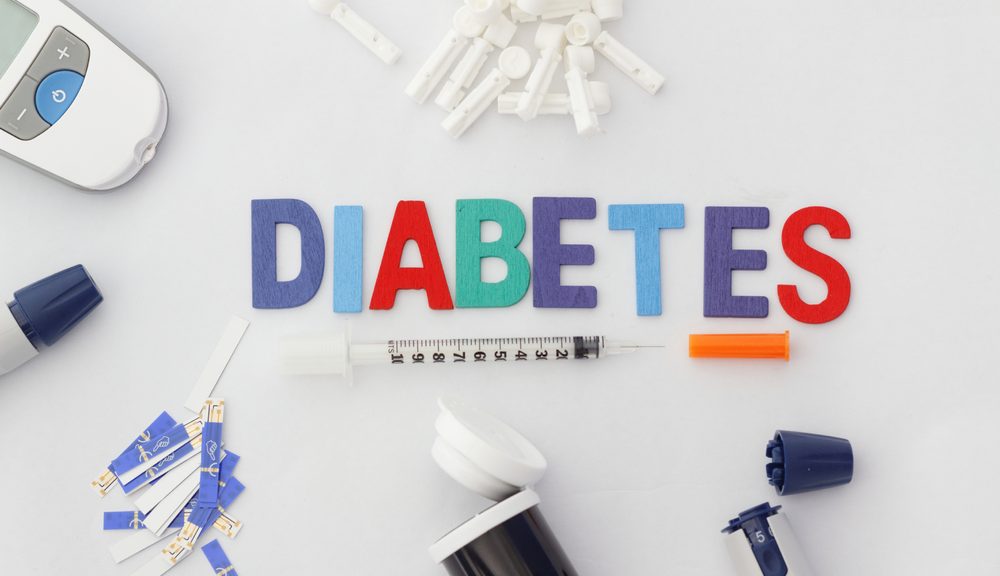
The Diabetes Dilemma
As today marks Diabetes Week (13-19 June), nutritional therapist Caroline Hind explains why it’s not your fault if you develop the disease
With more than four million people in the UK estimated to have type 2 diabetes and another 13 million people at increased risk of developing it[1], none of us can afford to be complacent. But why are so many of us developing type 2 diabetes?
Caroline Hind, registered nutritional therapist at Vitaminology and volunteer at The Public Health Collaboration, explains.
“Since being overweight usually goes hand in hand with this kind of diabetes, there’s a tendency to pin diabetes on this. While there’s some truth to this claim, it is more likely, for many people, that it’s the other way around and that the underlying problems in their body that led to type 2 diabetes are the reason they tend to gain weight so easily.
We all know those people who can eat whatever they like without gaining weight, while others only have to look at a cream cake to put on the pounds. There can be multiple underlying reasons for this, including the balance of those pesky microbes that live in our gut, but genetics certainly appear to be at play here. Weight problems and type 2 diabetes do run in families.
The fact is, the food we eat – especially the sugar – needs to be processed efficiently once it reaches our bloodstream. For people who start to lose the ability to do this, the hormone insulin remains at higher levels in their blood for longer, trying hard to bring blood sugar down to safe levels. Excess insulin and excess sugar have negative effects in the body, but the key point to remember is that insulin is ‘the storage hormone’. Yes, that’s right, it helps us store excess sugar as fat – in our fat cells. Not only that but, as a double-whammy, whenever insulin hangs around in the bloodstream, it stops the body from burning body fat.
So, the same process that causes type 2 diabetes also causes excess weight gain. Nutritionists find that patients with type 2 diabetes can bring their blood glucose, and hence their diabetes, under control before they start to lose weight. The good news for the rest of us is that dietary changes can head off diabetes before it develops.
3 ways to reduce your risk of type 2 diabetes
- Plan your treats
I’m not going to tell you to give up sugar. Most of us have tried that. Think instead about how you can upgrade your sweet foods. Love chocolate? Try a slightly darker chocolate – trade up to 35% cocoa for a while. After that, see if you like 46%. 53%? You’ll soon be enjoying 75% — it’s lower in sugar and higher in cocoa polyphenols, the compounds that actually boost health rather than compromising it.Love ice cream? Enjoy your favourite as a summer treat, but experiment with plain yoghurt and berries or honey when you’re at home. Blend coconut milk with frozen berries and a little banana. Or choose strawberries and cream. All of these are whole foods packed full of nutrients. Natural sugar is still sugar but you will be avoiding the huge sugar rush you get from factory-made products.
- Learn where the hidden sugars are
Starchy foods such as bread, cereals, pasta and rice are made up of glucose (sugar!).[2] Wholegrain varieties are healthier but, if you’re eating meals based on these carbohydrate-rich foods, there will still be a lot of glucose for your body to process. It’s best to keep these foods to no more than a quarter of your plate.[3]
- Fill up at meals
A light lunch is pointless if it’s so light you’re reaching for snacks by mid-afternoon. Add in some eggs, meat, fish, cheese, olives, avocado, beans or tofu to fill you up. These foods are rich in proteins and healthy fats that nourish the body and help to keep blood glucose levels balanced.
References:
[1] Source: Diabetes UK
[2] Unwin, D., et al., 2020. Insights from a general practice service evaluation supporting a lower carbohydrate diet in patients with type 2 diabetes mellitus and prediabetes: a secondary analysis of routine clinic data including HbA1c, weight and prescribing over 6 years. BMJ Nutrition, Prevention & Health, p.bmjnph-2020-000072: https://nutrition.bmj.com/content/3/2/285
[3] BANT, 2022. BANT | BANT Wellbeing Guidelines. [online] British Association for Nutrition and Lifestyle Medicine. Available at: <https://bant.org.uk/bant-wellbeing-guidelines/>